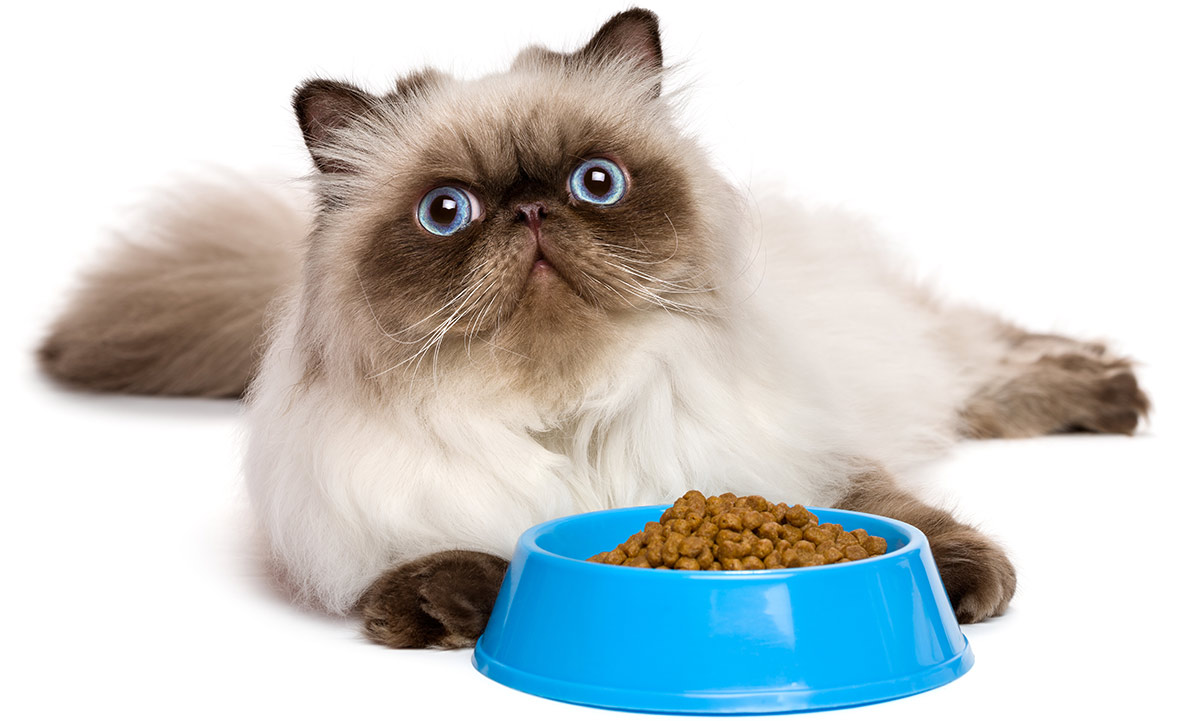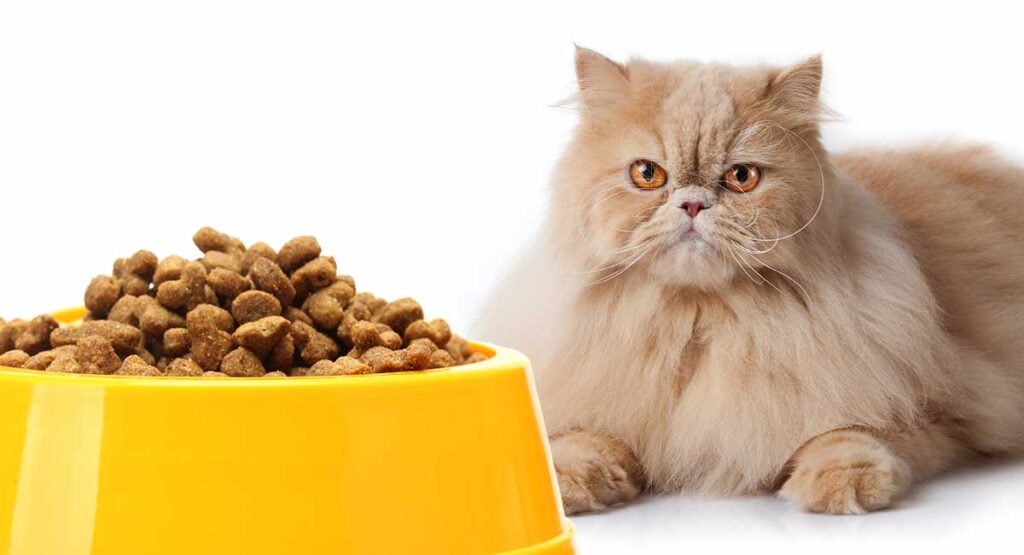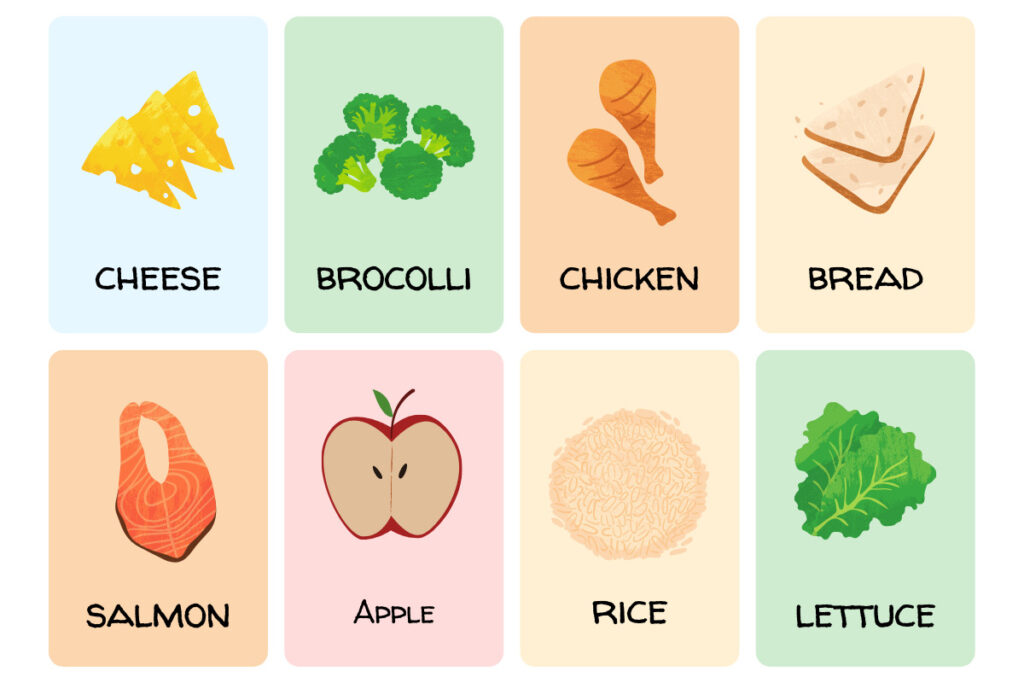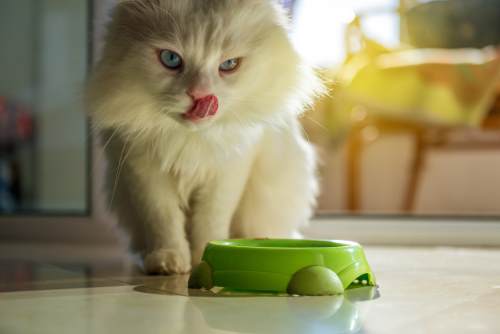Do you have a beautiful Persian cat at home? Well, then you must be wondering what are the best foods to keep your furry friend healthy and happy. Persian cats have unique dietary needs due to their luxurious coat and predisposition to certain health issues. In this article, we will discuss the best foods for Persian cats and provide you with some useful tips to ensure your feline companion is getting the nutrition they need.
Persian cats are known for their long and luscious coat, which requires regular grooming. To maintain their gorgeous mane, it is essential to feed them a diet that is rich in fatty acids, such as omega-3 and omega-6. Look for cat foods that contain fish oil or flaxseed oil, as these ingredients can help promote a healthy skin and coat for your Persian cat. Additionally, it is important to choose foods that are specifically formulated for Persian cats, as they often have specific nutritional requirements. These foods are usually designed to prevent hairball formation and support the digestive health of your feline friend.
In the next part of the article, we will dive deeper into the specific ingredients and nutrients that are beneficial for Persian cats, as well as discuss the importance of staying hydrated and feeding your furry friend a balanced diet. So, if you want to learn more about how to keep your Persian cat in optimal health, make sure to keep reading! Persian cats are known for their luxurious long coats and striking beauty. But did you know that these elegant felines have unique dietary needs? In order to keep your Persian cat healthy and thriving, it’s important to understand their nutritional requirements and choose the best foods for them. In this article, we will explore the dietary needs of Persian cats and provide valuable information on selecting high-quality commercial cat food, raw and homemade diet options, recommended protein sources, the importance of omega-3 fatty acids, managing hairballs, avoiding common food allergies, feeding guidelines, dental health, hydration, snacks and treats, common dietary issues, consulting with a veterinarian, and provide tips for providing the best diet for your Persian cat.

Understanding the Dietary Needs of Persian Cats
Persian cats have unique nutritional requirements due to their breed characteristics. Their long, dense coats require proper nutrition to maintain their health and beauty. Additionally, Persian cats are prone to certain health issues, such as digestive problems, urinary tract issues, and weight management concerns. Understanding their dietary needs is essential for their overall well-being.
The Unique Nutritional Requirements of Persian Cats
Persian cats require a diet that is rich in protein, moderate in fat, and low in carbohydrates. Protein is essential for building and maintaining muscle mass, while fat provides energy and helps with the absorption of fat-soluble vitamins. However, it’s important to note that Persian cats are not very active, so they don’t require as many calories as other breeds. Feeding them a diet that is too high in calories can lead to weight gain and associated health problems.
The Importance of a Balanced Diet for Persian Cats
A balanced diet is crucial for maintaining the overall health of Persian cats. A well-balanced diet should include all the essential nutrients such as proteins, fats, carbohydrates, vitamins, and minerals in the right proportions. Providing a balanced diet ensures that your Persian cat receives all the necessary nutrients for their growth, development, and overall health. It also plays a vital role in preventing and managing various health issues that are common in this breed.
Choosing High-Quality Commercial Cat Food for Persians
Commercial cat food can be a convenient and reliable option for feeding your Persian cat. However, not all commercial cat foods are created equal. It’s important to choose a high-quality cat food that meets the specific needs of Persian cats. Here are some factors to consider when selecting commercial cat food for your Persian:
Reading and Understanding Cat Food Labels
When selecting a commercial cat food for your Persian, it’s crucial to read and understand the cat food labels. Look for high-quality protein sources, such as chicken, turkey, or fish, listed as the first ingredient. Avoid cat foods that contain by-products, fillers, or artificial preservatives. Additionally, pay attention to the guaranteed analysis, which provides information about the levels of protein, fat, and fiber in the cat food.
Identifying the Key Nutrients Your Persian Cat Needs
Persian cats require specific nutrients to support their unique dietary needs. Look for cat foods that contain adequate levels of protein to support muscle development and maintenance. Additionally, your Persian cat needs a sufficient amount of healthy fats to maintain their coat’s health and luster. Omega-3 fatty acids are especially beneficial for Persian cats as they promote skin and coat health.
Avoiding Common Allergens in Cat Food
Some Persian cats may have food allergies or sensitivities to certain ingredients. Common allergens in cat food include grains, beef, dairy products, and fish. If you notice signs of food allergies, such as skin rashes, gastrointestinal issues, or excessive itching, consult with your veterinarian to identify the allergen and choose a cat food that avoids those specific ingredients.

Raw and Homemade Diet Options for Persian Cats
In recent years, raw and homemade diets have gained popularity among pet owners. While these diets can be a viable option for feeding Persian cats, it’s essential to consider the benefits and risks associated with them.
The Benefits and Risks of Raw Diets for Persian Cats
Raw diets consist of raw meat, bones, and organs. Advocates of raw diets claim that they mimic a cat’s natural diet and provide numerous health benefits. However, raw diets can be time-consuming and require careful handling to prevent bacterial contamination. It’s also essential to ensure that the raw diet is nutritionally complete and balanced, as a deficiency in certain nutrients can lead to health issues.
Creating a Balanced Homemade Diet for Your Persian Cat
If you choose to feed your Persian cat a homemade diet, it’s crucial to work with a veterinary nutritionist to ensure that the diet is properly balanced and meets your cat’s specific needs. Homemade diets should include a variety of high-quality protein sources, such as chicken, turkey, or fish, along with appropriate amounts of carbohydrates and fat. It’s important to provide all the necessary nutrients through the homemade diet or through appropriate supplementation.
Supplementing Raw and Homemade Diets with Commercial Food
It’s important to note that raw and homemade diets may not always provide all the necessary nutrients for your Persian cat. It’s recommended to supplement these diets with commercial cat food. A high-quality commercial cat food can provide the essential nutrients that may be lacking in a raw or homemade diet. Consult with your veterinarian to determine the appropriate balance between raw or homemade diets and commercial cat food.
Recommended Protein Sources for Persian Cats
Protein is an essential nutrient for Persian cats and plays a vital role in their overall health and well-being. The quality and source of protein in your cat’s diet are crucial for meeting their nutritional needs.
Identifying High-Quality Animal Protein in Cat Food
When choosing cat food for your Persian, look for high-quality animal protein sources listed as the first ingredient. Chicken, turkey, and fish are excellent protein sources for Persian cats. These protein sources provide essential amino acids that support muscle development and maintenance.
Understanding the Role of Protein in Persian Cat Health
Protein is vital for Persian cats’ health as it supports various body functions, including muscle growth, maintenance, repair, and hormone production. It also helps to support a healthy immune system and provides energy. Ensuring that your Persian cat receives an adequate amount of high-quality protein in their diet is essential for their overall health and well-being.
Balancing Protein Sources for Optimal Nutrition
To provide a well-rounded diet for your Persian cat, it’s important to balance protein sources. Rotate between different protein sources, such as chicken, turkey, and fish, to ensure that your cat receives a variety of essential amino acids and nutrients. This will help prevent monotony in their diet and provide optimal nutrition.

The Importance of Omega-3 Fatty Acids for Persian Cats
Omega-3 fatty acids play a crucial role in the overall health and well-being of Persian cats. These essential fatty acids offer numerous benefits and are particularly important for maintaining healthy skin and a lustrous coat.
Understanding the Benefits of Omega-3 Fatty Acids
Omega-3 fatty acids are considered to be essential because cats cannot produce them naturally. They have anti-inflammatory properties that can help reduce skin irritation, itchiness, and promote a healthy, shiny coat. Additionally, omega-3 fatty acids support brain function, eye health, and may help reduce the risk of certain diseases, such as heart disease and arthritis.
Sources of Omega-3 Fatty Acids in Persian Cat Diets
To provide your Persian cat with omega-3 fatty acids, include sources such as fish oil, salmon, sardines, or flaxseed oil in their diet. These sources are rich in EPA and DHA, which are the beneficial forms of omega-3 fatty acids for cats. However, it’s important to consult with your veterinarian regarding the appropriate dosage and frequency of omega-3 fatty acid supplementation.
Supplementing with Fish Oil or Other Omega-3 Sources
If your cat’s diet lacks sufficient omega-3 fatty acids, consider supplementing their diet with fish oil or other omega-3 sources. Fish oil supplements are readily available and can be added to your cat’s food. However, consult with your veterinarian to determine the appropriate dosage and ensure that the supplement is of high quality and suitable for your Persian cat.
Managing Hairballs in Persian Cats
Hairballs are a common issue for Persian cats due to their long, dense coats. Proper nutrition plays a crucial role in managing hairballs and promoting healthy digestion.
The Link Between Diet and Hairball Formation
A high-quality diet can help reduce the frequency and severity of hairballs in Persian cats. A diet that is rich in fiber can help promote healthy digestion and prevent the buildup of hair in the digestive system. Additionally, providing your Persian cat with sufficient moisture through their diet can help keep their digestive system functioning properly.
Fiber and Hairball Control in Persian Cat Diets
Fiber is an essential component of a Persian cat’s diet when it comes to managing hairballs. It helps promote healthy digestion and prevents the accumulation of hair in the intestinal tract. Look for cat foods that contain adequate fiber, such as beet pulp or psyllium, to help prevent hairball formation. Additionally, providing your cat with access to fresh water throughout the day can help maintain proper hydration and support healthy digestion.
Additional Tips for Preventing Hairballs
In addition to a high-fiber diet, there are other steps you can take to prevent hairballs in your Persian cat. Regular brushing to remove loose hair from their coat is essential. This reduces the amount of hair that they ingest during grooming. Providing your cat with appropriate toys for play and exercise can also help stimulate their digestive system and prevent hairball formation.

Avoiding Common Food Allergies in Persian Cats
Food allergies can cause a range of symptoms in Persian cats, including skin rashes, gastrointestinal issues, and excessive itching. Identifying and avoiding common food allergens is crucial for managing food allergies in your Persian cat.
Identifying Common Food Allergens for Persian Cats
Common food allergens for cats include grains, beef, dairy products, and fish. If you suspect that your Persian cat has a food allergy, work with your veterinarian to conduct an elimination diet. This involves removing potential allergens from your cat’s diet and reintroducing them one by one to identify the specific allergen.
Transitioning to a Hypoallergenic Diet
If your Persian cat has been diagnosed with a food allergy, transitioning them to a hypoallergenic diet is often recommended. Hypoallergenic diets are formulated to minimize the risk of triggering an allergic reaction. These diets typically use novel protein sources, such as venison or rabbit, and limited ingredients to reduce the likelihood of an allergic response.
Monitoring and Managing Food Allergies
Once you have identified the specific food allergen, it’s crucial to avoid feeding it to your Persian cat. Strictly adhering to the hypoallergenic diet recommended by your veterinarian is essential to manage and prevent allergic reactions. Regular check-ups with your veterinarian can help monitor your Persian cat’s allergies and make any necessary adjustments to their diet.
Feeding Guidelines for Persian Cats
Feeding your Persian cat the right amount of food and ensuring proper portion sizes is crucial for maintaining a healthy weight and overall well-being.
Determining Portion Sizes for Your Persian Cat
The appropriate portion size for your Persian cat depends on their age, weight, activity level, and overall health. Use the feeding guidelines provided by the cat food manufacturer as a starting point and adjust the portion size based on your cat’s individual needs. Monitor your cat’s weight and body condition regularly and consult with your veterinarian if adjustments are needed.
Frequency of Feeding to Maintain a Healthy Weight
Persian cats are not very active and tend to be prone to weight gain. It’s important to establish a feeding schedule and stick to it to prevent overeating. Divide your cat’s daily portion into several smaller meals throughout the day to promote healthy digestion and prevent excessive weight gain. Discuss with your veterinarian the appropriate frequency of feeding for your Persian cat.
Adjusting the Diet Based on Life Stage and Activity Level
As your Persian cat grows and ages, their dietary needs may change. Kittens require a diet that is rich in calories, protein, and essential nutrients to support their growth and development. Adult cats have lower calorie requirements and may require a diet that promotes weight management. Senior cats may benefit from a diet that supports joint health and provides additional antioxidants. Additionally, if your cat’s activity level changes, such as becoming more or less active, their calorie requirements may need adjustment.

Supplementing the Diet with Dental Health Products
Dental health is an important aspect of your Persian cat’s overall well-being. Choosing the right dental health products and implementing proper techniques can help promote good oral hygiene.
The Link Between Diet and Oral Health in Persian Cats
The diet you feed your Persian cat can have a significant impact on their oral health. Feeding a diet that is free from sugary ingredients and promotes chewing can help reduce the buildup of plaque and tartar. Additionally, providing dental health products can help keep your cat’s teeth clean and minimize dental issues.
Choosing Dental Health Products for Your Cat
When choosing dental health products, look for those that have earned the Veterinary Oral Health Council (VOHC) seal of approval. These products have been tested and proven to help reduce plaque and tartar buildup. Dental treats, toothpaste, and toothbrushes designed specifically for cats can be effective tools for maintaining oral health.
Proper Techniques for Using Dental Health Products
Brushing your Persian cat’s teeth regularly is one of the most effective ways to maintain their oral health. Use a toothbrush and toothpaste specifically designed for cats. Start slowly and gradually introduce tooth brushing to your cat. Make sure to use gentle movements and reward your cat for their cooperation. If your cat is resistant to tooth brushing, dental treats and dental toys can be used as additional tools for maintaining oral health.
Hydration and Water Intake for Persian Cats
Proper hydration is vital for your Persian cat’s overall health and well-being. Encouraging water consumption and providing alternative hydration sources can help ensure that your cat stays properly hydrated.
The Importance of Proper Hydration for Persian Cats
Proper hydration is essential for maintaining healthy kidney function, promoting digestion, and supporting overall health. Persian cats are prone to urinary tract issues, and sufficient water intake can help prevent these problems. Ensuring that your cat has access to fresh and clean water at all times is crucial.
Encouraging Water Consumption in Persian Cats
Persian cats can be picky when it comes to drinking water. Some cats prefer running water or drinking from a fountain. Consider providing a water fountain for your Persian cat to encourage them to drink more water. You can also offer wet cat food, which has a higher moisture content, as a way to increase their water intake. Additionally, adding a small amount of water to their dry food can help increase their hydration.
Alternative Hydration Sources for Cats
In addition to water, there are alternative hydration sources for cats that can help ensure they receive sufficient moisture. Wet cat food, bone broth, or diluted low-sodium chicken broth can be offered as tasty options to encourage increased water consumption. However, it’s important to consult with your veterinarian to ensure that these alternatives are appropriate and do not interfere with your cat’s overall diet.
Snacks and Treats for Persian Cats
Snacks and treats can be a fun way to bond with your Persian cat and offer them a special reward. However, it’s important to choose healthy options and avoid common pitfalls.
Finding Healthy Snack Options for Your Persian Cat
When looking for snacks and treats for your Persian cat, opt for high-quality options that are specifically formulated for cats. Look for treats that are low in calories, free from artificial additives, and provide additional health benefits, such as dental health or skin support.
Avoiding Common Snack Pitfalls
Avoid feeding your Persian cat snacks and treats that are high in calories, fat, or sugar. These can contribute to weight gain and associated health issues. Additionally, be cautious when introducing new snacks or treats to your cat’s diet to ensure that they do not have any adverse reactions or allergies.
Using Treats as Training Tools
Treats can be a valuable tool for training your Persian cat and rewarding good behavior. Use small, bite-sized treats that are easy for your cat to consume quickly. Remember to moderate the number of treats given to avoid overfeeding and adjust your cat’s daily calorie intake accordingly.
Common Dietary Issues in Persian Cats
Persian cats are prone to certain dietary issues that require special attention. Understanding and managing these issues is crucial for maintaining their overall health.
Sensitive Stomachs and Digestive Issues
Persian cats can have sensitive stomachs and may be prone to digestive issues such as vomiting or diarrhea. Feeding a high-quality, easily digestible diet can help minimize these issues. If digestive problems persist, consult with your veterinarian to determine the underlying cause and find a suitable solution.
Urinary Health Concerns and Diet
Urinary tract issues, including the formation of urinary crystals or stones, are common in Persian cats. Feeding a diet that supports urinary health, such as a prescription urinary diet, can help prevent these issues. Additionally, providing access to fresh water and encouraging increased water consumption can also promote urinary tract health.
Weight Management Strategies for Persian Cats
Due to their sedentary lifestyle, Persian cats are prone to weight gain. Being overweight can lead to various health issues, including joint problems and increased risk of diseases. Feeding a diet with adequate nutrition and appropriate portion sizes, along with regular exercise, can help manage your Persian cat’s weight. Consult with your veterinarian for personalized weight management strategies tailored to your cat’s specific needs.
Consulting with a Veterinarian for Dietary Advice
Professional guidance from a veterinarian is invaluable when it comes to feeding and managing the dietary needs of your Persian cat.
The Importance of Professional Guidance in Cat Nutrition
A veterinarian with experience in Persian cat care can provide expert advice and guidance on feeding your cat a well-balanced and nutritionally appropriate diet. They can help you develop a customized feeding plan based on your cat’s unique needs, monitor their health, and make any necessary adjustments to their diet.
Finding a Vet with Experience in Persian Cat Care
When selecting a veterinarian for your Persian cat, look for a professional with experience and knowledge in Persian cat care. Persian cats have specific health and dietary needs that may require expertise beyond the average cat. Do your research and ask for recommendations to find a veterinarian who is well-versed in Persian cat health and nutrition.
Regular Check-ups and Diet Adjustments
Regular check-ups with your veterinarian are essential for monitoring your Persian cat’s health and making any necessary adjustments to their diet. Your veterinarian can assess your cat’s body condition, check for any signs of health issues, and provide recommendations for maintaining their overall well-being. Remember to discuss any changes in your cat’s behavior, appetite, or digestion during these check-ups to ensure that their diet is meeting their needs.
Conclusion
Feeding your Persian cat a healthy and well-balanced diet is essential for their overall health and well-being. Understanding their unique nutritional requirements and choosing the best foods can help prevent common health issues and support their long and luxurious coats. By selecting high-quality commercial cat food, considering raw and homemade diet options, choosing optimal protein sources, ensuring sufficient omega-3 fatty acid intake, managing hairballs, avoiding food allergies, establishing proper feeding guidelines, promoting dental health, providing adequate hydration, selecting healthy snacks and treats, managing common dietary issues, and consulting with a veterinarian, you can provide the best diet for your beloved Persian cat. By putting in the effort to meet their specific needs, you can help ensure a long and healthy life for your Persian companion.